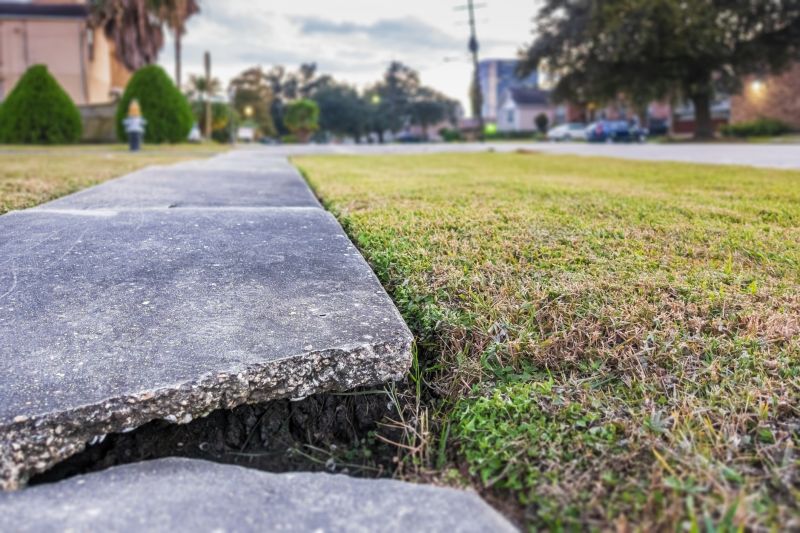Leading Products for Concrete Crack and Surface Repair
Identify the best solutions to address common concrete issues with products designed for strength and durability.
 Concrete repairs are essential for maintaining the structural integrity and aesthetic appeal of various surfaces around residential, commercial, and industrial properties. Over time, concrete can develop cracks, chips, or surface deterioration due to weather conditions, load stress, or age. Selecting the right products for concrete repairs ensures that these issues are addressed effectively, preventing further damage and extending the lifespan of the concrete surfaces. Whether dealing with small cracks or larger surface defects, there are numerous repair options designed to meet different needs and scenarios.
Concrete repairs are essential for maintaining the structural integrity and aesthetic appeal of various surfaces around residential, commercial, and industrial properties. Over time, concrete can develop cracks, chips, or surface deterioration due to weather conditions, load stress, or age. Selecting the right products for concrete repairs ensures that these issues are addressed effectively, preventing further damage and extending the lifespan of the concrete surfaces. Whether dealing with small cracks or larger surface defects, there are numerous repair options designed to meet different needs and scenarios.
Types of Products For Concrete Repairs
Concrete Crack Sealants
Flexible sealants formulated to fill and seal cracks in concrete surfaces, preventing water infiltration and further deterioration.
Concrete Patching Compounds
Ready-mixed or powder-based compounds used to fill surface chips, holes, and minor surface imperfections.
Epoxy Concrete Repair Kits
High-strength epoxy formulations ideal for structural repairs and bonding broken concrete pieces together.
Polyurethane Foam Fillers
Expanding foam products used to fill larger cracks and voids, providing support and stability.
Hydraulic Cement
Quick-setting cement used to stop active leaks and repair damaged concrete surfaces exposed to moisture.
Concrete Resurfacing Products
Thin overlays and coatings designed to restore the appearance and surface integrity of worn concrete.
Surface Sealers
Protective coatings that seal the surface, preventing water penetration and enhancing durability.
Fiber Reinforced Patches
Patches embedded with fibers to improve strength and crack resistance in repair areas.
Self-Leveling Underlayments
Flowable products used to create smooth, even surfaces over uneven concrete floors.
Concrete Densifiers
Chemical treatments that harden and densify the surface of concrete, improving resistance to wear.
Bonding Agents
Adhesives used to improve the bond between old and new concrete layers during repairs.
Waterproofing Membranes
Layered materials applied to concrete surfaces to prevent water ingress and damage.
Expansion Joint Filler
Materials used to fill and seal expansion joints, accommodating movement and preventing cracking.
Concrete Repair Mortars
Heavy-duty mortars designed for structural repairs and rebuilding damaged concrete sections.
Quick-Set Repair Mixes
Fast-curing mixes suitable for urgent repairs requiring rapid setting times.
Crack Filler Sticks
Portable sticks that melt and fill small cracks easily, ideal for quick touch-ups.
Concrete Surface Cleaners
Specialized cleaners used to prepare concrete surfaces before applying repair products.
Popular Choices
Widely used for sealing cracks and preventing water intrusion, suitable for various crack sizes.
Popular for structural and bonding repairs, offering high strength and durability.
Often selected for active leak repairs and quick fixes on damaged surfaces.
Commonly used for surface repairs, chips, and small holes.
Chosen to protect repaired surfaces from water and wear.
Preferred for creating smooth floors over uneven concrete substrates.
Popular for basement and foundation waterproofing applications.
Frequently used to manage concrete movement and prevent cracking.
Used to restore worn or stained surfaces with thin overlays.
Commonly applied to improve adhesion between old and new concrete layers.
Chosen for added strength in repair patches and overlays.
Valued for rapid repairs requiring minimal downtime.
Convenient for small crack repairs and touch-ups.
Used to prepare surfaces for optimal adhesion of repair products.
When considering concrete repair products, it is important to evaluate the specific type of damage, the location of the repair, and the desired finish. Some products are formulated for quick fixes, offering fast-setting properties suitable for urgent repairs, while others provide long-term durability for structural fixes. Proper surface preparation and selecting compatible repair materials are key to achieving satisfactory results. Additionally, understanding the application techniques and curing requirements can influence the longevity and appearance of the repair.
In Milford, CT, where weather conditions can vary, choosing weather-resistant and adaptable repair products can help ensure that repairs withstand local climate challenges. From indoor floors to outdoor walkways and foundation walls, there are specialized products tailored for different environments and surfaces. Investing in quality repair materials not only restores the function of concrete structures but also contributes to maintaining safety and property value over time.
Key Buying Considerations
- Determine the extent and type of damage to select the appropriate repair product.
- Consider whether the repair is for structural integrity or surface aesthetics.
- Check compatibility of repair materials with existing concrete surfaces.
- Evaluate the climate and weather conditions where the repair will be applied.
- Assess the curing and drying times to plan project timelines accordingly.
- Choose products that offer flexibility if the concrete is subject to movement or expansion.
- Opt for products with good adhesion properties to ensure long-lasting repairs.
- Consider ease of application, especially for DIY projects or less experienced users.
- Review the durability and resistance features, such as water, freeze-thaw, or chemical resistance.
- Identify if the product is suitable for indoor, outdoor, or specialized environments.
- Check for any surface preparation requirements before application.
- Evaluate the need for color matching or finishing options to blend repairs seamlessly.
- Determine if the product is suitable for large-scale repairs or small touch-ups.
- Look into the manufacturer's instructions and recommended curing procedures.
- Consider the long-term maintenance needs of the repair area.
